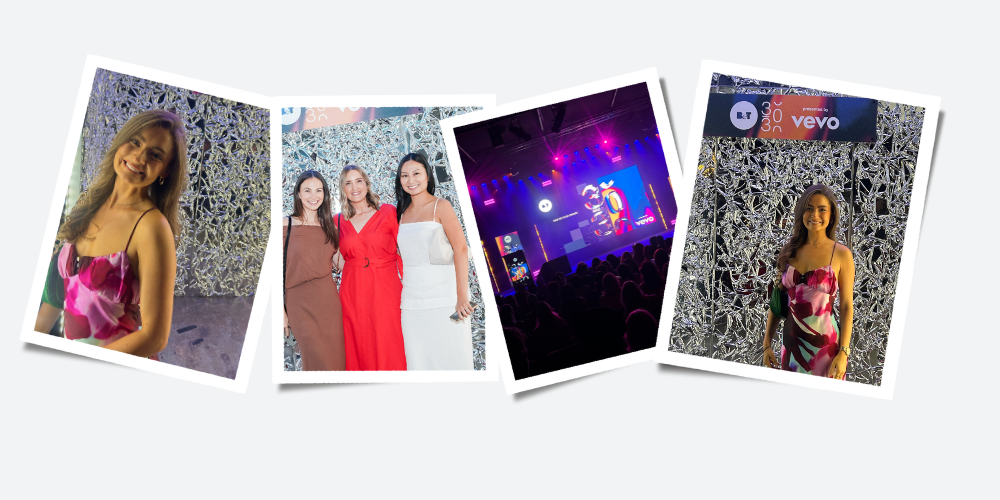Speaker Series Event: Network or Indie Agency – What's Right for YOU?
This week we hosted another of our Speaker Series events, where we bring industry leaders together to discuss hot topics and share knowledge.
Over the last year the iknowho team has met over 1,000 marketers and agency talent on the search for the next step in their career. We are commonly asked by agency folk, ‘What’s the right style of agency for me?’ and ‘Should I go to a network or an independent?’.
So this event aimed to tackle the differences between Networks and Independent agencies and help our audience ‘Get in the know’.
We were joined by an awesome panel of speakers including Victoria Curro, Managing Director at LIDA (M&C Saatchi Group), Cade Heyde, Managing Partner and Co-Founder of Special Group and Brooke Chilcott, Head of Account Management at Host. All of our speakers have worked at a variety of top network and indie agencies throughout their careers and here are some of the insights they shared.
Q: What are the main differences between network agencies and independents?
Brooke focussed on culture; in her experience as independents are often smaller they tend to have a ‘we are all in this together’ culture, as everyone knows each other. Often the ‘culture starts to break down’ as an agency gets bigger (typically over 100 people), as you don’t know everyone and you don’t form groups that are as close, or you build those relationships instead within smaller groups. Brooke also talked about the phenomenon of ‘wearing many hats’
Victoria talked about every network agency being very different, and the biggest thing to look for was who the leaders or founders are and how they run the business, as the way they think and behave will really influence you.
‘You need to think about who the founder is, what do they believe, what is their personality…because it influences everything, from the toilet paper they buy to the business at the front desk’
In a network due to the size there are multiple personalities so you are more likely to buy into the brand, not a specific personality. So you need to think about what that agency ‘brand’ stands for.
Q: Is it true that there are a lot more processes and ‘red tape’ in network agencies?
Victoria – ‘it depends on the network’… ‘when you go into an interview, one of the questions you should ask, is how much autonomy does that the local office have’
Cade – ‘The culture we have tried to build at Special Group, is free from the barriers of the more traditional agencies….culture that is based around conversation and also the structure on how to go about things…..we’ve built a process that’s more like an operating system; it’s less about a rigid structure that’s set for years, but something that is constantly evolving and that we can ‘hack’ as and when needed’.
Q: Is there a difference in the type of work or clients a network attracts?
Cade – ‘for us at Special Group it’s more our ability to transform the types of problems that we are tackling, which I think is a little bit different if you are a network agency. However, I don’t think that’s a network thing necessarily, I think that’s a size thing’
Brooke – ‘Network agencies have such good buying power and because of their reputation they have tendency to attract bigger brands with bigger budgets’
Q: Has there been a shift/closing of the gap between networks & independents?
Victoria talked about the change in the industry; networks known for being big ‘machines’ are breaking into smaller groups and becoming more agile. For example, the M&C Saatchi Group is not one massive agency of 400 people, it’s a group of 10 smaller agencies and LIDA is 50 people.
Q: Do you think you can progress your career quicker in an independent?
Overwhelmingly our panel believe this really comes down to the individual. ‘put yourself out there’ and ‘seize opportunities’, ‘put your hand up’, ‘volunteer for pitches’ and you’ll naturally get ahead.
Whilst often the perception can be that it takes longer to progress through the ranks at a network, the same can be true of an independent as people often stay in their roles for quite a while, creating a ceiling where you need someone to move on before a role becomes available.
For Victoria it wasn’t necessarily about the speed of progression, but who she had exposure to:
‘There was a point where I wanted to benchmark myself because within this business, you make it up as you go along…sometimes you run out of ideas and you think am I just making this up completely or am I actually on point? When I decided I wanted to go back to a network, it was because I wanted to go to an agency where I could benchmark myself against other people ……I wanted to get lots of exposure to San Francisco and Singapore and all the other offices. But regardless of network or independent, if you want exposure, put your hand up.’
Q: What characteristics or personality traits suit each kind of agency and what are tips for success?
Cade – ‘For an independent its entrepreneurialism…it’s about the spirit you portray, it’s about the way you talk about brands and the plans for your future’.
Brooke – ‘In an independent, it’s about risk taking and the entrepreneurial spirit’
Victoria – ‘Working in a network, you have to learn to put yourself out there more. In smaller businesses, which independents tend to be, learn the art of diplomacy.’
Q: What questions should people ask when they are looking at agencies to understand their style and culture?
Victoria suggested that when looking at network agencies, ask where are the decisions made? Locally or globally? How much autonomy does the local office / division have? Also ask what’s the tenure / turnover of employees. ‘Use your networks to actually infiltrate the culture, as it’s hard to pick up in interviews what people are really like. Ask questions about decisions and where decisions are made. Ask about the tenure of people; if you see that people are leaving, is there a reason for that? I think it’s more culture that makes people leave than just hard clients.’
Cade suggested asking for ‘proof points’ or evidence when an agency says they have a great culture. ‘We ask our clients for evidence and proof points when they brief us on their products and services for campaigns - we should do the same for our internal culture, so get agencies to talk about their proof points and the reasons why they make those claims.’
All the speakers advised that you shouldn’t be shy about networking too.
Cade – ‘I massively regret is not making the effort to network with people, even when I wasn’t in the network for a new job’
Brooke – ‘Don’t be shy to approach senior people, as they want to give back to the industry. We were all there once’
Q What about some tips for future proofing your agency career as the industry changes?
Cade – ‘As we navigate ourselves through an industry that is always changing, we need to bring young talent that can change in tandem, treat the place like their own, treat a brand like their own, and can wear many hats. We are all becoming less advertising and the whole reason we will exist in the next 5 years is to help clients’ be sustainable in the future. We need to start behaving more like consultants, not just in the way we operate but with the types of problems that we tackle. So get involved, be part of a culture and be the person who wants to create something.
Victoria – ‘Bring resilience…there are lots of knock backs…entrepreneurialism, flexibility, productivity, resilience those are the kind of qualities you’ll need.’
Brooke – ’Have curiosity and a thirst for knowledge. Diversify your knowledge and think about multiskilling; getting amongst diverse disciplines and sit with other teams.’
We really enjoyed hosting this event and are already thinking about what we’ll do next.
Jo Gobbo
Senior Talent Consultant










